Introduction
Gut health is becoming increasingly more popular in the media, particularly its relationship with your immune system.
So how would you like to learn from one of the physicians that led the research in the field of gut health?
This week on The Goodness Lover Podcast, we are excited to introduce Dr. Emeran Mayer—a medical doctor, gastroenterologist, a leading research scientist in his field, and the best-selling author of The Mind-Gut Connection and The Gut-Immune Connection.
Watch the Interview:
Follow along as Dr. Mayer explains:
👨⚕️ His long journey to brain-gut medicine
📍 How the immune system is located primarily in the gut
⚙️ How microbes are able to regulate sickness severity
🌱 The connection between the food we eat and the health of our gut
🍽 How to eat for a diverse gut microbiome
🦠 The gut’s role in this pandemic (and how your microbiome can help protect your physical and mental health)
🤨 The connection between our emotions and the gut
Watch now and learn about the link between managing your lifestyle and diet to build a diverse and rich microbiome.
Additional Resources
To connect with Dr. Emeran Mayer and discover more of his work, you can find him on Instagram and Facebook. You can also visit his website here.Transcript
Sarah: Hello, and welcome back to the Goodness Lover Show. Today we're joined by Dr. Emeran Mayer, who is a medical doctor, a gastroenterologist, a best selling author of his book, The Mind-Gut Connection, and he is a prolific writer. He has written over 385 peer reviewed papers, and he has just come out with his new book, The Gut-Immune Connection. We're going to be talking all about how our gut health plays into our immune system and how to best eat for our gut health. Let's get into it. Dr. Emeran Mayer, it is wonderful to be with you today to talk all about The Gut-Immune Connection. Thank you for joining us.
Dr. Emeran Mayer: Thanks for the invitation. It's wonderful to be here. I look forward to the conversation.
Sarah: Awesome. So when I originally asked you to be part of our series, the Gut-Brain Solution, I actually have a very hard time figuring out how to write your bio because I could only put in a couple of characters. You've done so many things. So you're a medical doctor, you're a gastroenterologist, you're a professor, you're a best selling author, you've just let us know that you have actually written ... What was it? 385 peer reviewed articles, which is low key insane. That's amazing. And on top of that, which Matt was nerding out about, you're also a mountaineer and all of these amazing things. So thank you for joining us. It is honestly an honor to have you. We're excited to talk about a bit about your new book, The Gut-Immune Connection. So before we get into that, I would love to hear a bit more about you. What led you to get into gut health? What was the catalyst for your academic endeavor in this area?
Dr. Emeran Mayer: Well, it started with an interest really in mind-body or brain-body interactions. That's what got me into medical school. I pursued that. I initially did my dissertation on brain-heart interactions. I spent several years working on that topic. But then I did a rotation, a student rotation at the Mass General Hospital in Boston in gastroenterology. So this is the maker of medicine in the US. And that experience really convinced me that the patients with gastroenterological diseases or disorders are much closer to what I'm interested in how the mind influences the gut and vice versa. And so to the big chagrin of my thesis advisor who said I'm making a huge mistake in my career giving up cardiology, I entered gastroenterology and went through the different stages, procedures, and endoscopies, sort of traditionals, but I've never really lost my interest in this brain-gut interaction.
So it's been a pretty consistent thread throughout my entire career. I'm sort of proud of it that I didn't give up because in the beginning of that there was zero interest either of my colleagues who thought I'm crazy looking at the brain as a gastroenterologist or of patients who at the time resented the idea that their problems might be psychological in nature. So it was a pretty lonely part the first two decades of my career. I'm glad I stuck with it. And it's particularly exciting now to see this explosion of interest in this topic.
Sarah: Amazing. Awesome. Well, thank you so much for your contribution to that part of science. Even though it wasn't taken up by your colleagues right away, it's certainly very popular now.
Matt: It's casually mentioned two decades.
Sarah: I know. Two decades.
Matt: Two decades in the wilderness you were out there just doing a decidedly image review in the mountains setting and putting things together.
Dr. Emeran Mayer: Yeah. This goes back to the persistence you need as a mountaineer. Not giving up.
Sarah: Ain't no mountain high enough? So I'd love to talk about the Gut-Immune Connection. We discussed a little bit before the call that when people think about their immune systems, they're thinking vitamin C, they're thinking eating their oranges, but very few people are thinking about the health of their gut. So can you tell us a little bit about it? How is the gut microbiome connected to our immune health?
Dr. Emeran Mayer: So the main fact here is that about 70% of immune cells are located in the gut or migrate through the gut on their developmental cycle. So immune cells that reach the brain, or the heart, or the liver they have had a contact ... they have been in the gut and they have been influenced by factors in the gut that are primarily on the one side the microbes that can interact with them. But I should also mention the brain as well because the brain sends down signals to the gut as well and can modulate the function. These immune cells are influenced by these two factors from the environment. One from the external environment through our stress level and emotions, the other one through diet and the microbes. Equally interesting, so it's not just that the majority of the system is in the gut, but also that it's only microns away from ... the immune cells are only microns away from these trillions of microbes.
It's an amazing engineering feature that evolution came up with, which is an extremely dangerous situation. That you would expose a system that's so sensitive to microbial both good and bad influences from the microbes. You have it placed so closely together. And the only way that this works is that the microbes have a big influence on the barrier that separates them from our immune cells. I think it boils down to many of the factors that have to do with gut health, immune health. It really boil down to the fact that microbes are in this unique position to regulate the sickness of initially the mucus layer that they participate in generating because they send signals to especially cells in the gut that produce the mucus. But then also, once this mucus layer is compromised, the effect of this immune activation on the epithelial cell layer, which can be become more permeable. And once that happens, then you have a situation that there is direct communication between components of the microbe, says cell wall membranes, getting into the bloodstream and interacting with this toll-like receptors that are everywhere including the brain, and induce immune activation at distant sites.
So it starts there in the gut. Initially it would seem like a very innocuous event, that just mucus layer is thinning because of our diet, and what effect this has on the microbes and then leading to this avalanche which I believe been put out ... put forward in this book that it is the main cause for our current chronic disease epidemic, chronic noninfectious disease epidemic. So we're so much influenced and so much programmed about the pandemic, but under the surface, we have this epidemic of chronic diseases that probably human kinds have never experienced before. From obesity, metabolic syndrome, colon cancer, neurodegenerative disorders, nonalcoholic fatty liver disease, cardiovascular disease. I sort of hate as a scientist to make this sort of generalizable hypothesis. We're always skeptical when somebody says something like this, but I have to say, based on the research I did in thinking this through, it seems to be just as straightforward as this. That there's a fairly almost like the string theory of our immune system.
Matt: Could you take us down, I guess, an example of one of those diseases that may be that you've studied the most as to how the gut ... It just seems so distant to some of these diseases that it somehow connects. Could you just take us and explain the connections there?
Dr. Emeran Mayer: Yeah. So as I said, the common denominator is the immune system and immune cells that play a role in all these diseases. So 20 years ago, I still remember this, we knew that if you take anti-inflammatory drugs like NSAIDs, for example, that is a good thing for preventing polyps and colon cancer. It decreases your risk. So it wasn't really clear by what mechanism it is. Similar with the heart. When you take aspirin, millions of people take aspirin, why would an anti-inflammatory molecule or drug have this protective effect? I am not aware that this has been shown for some of the others in terms of ... with this anti-inflammatory drugs, but there is now emerging evidence from all these different specialties that a very similar process .... The details obviously, of the immune system are extremely complicated. When I say immune activation, it's 50 different cell types which have been characterized with all their pathways. But ultimately, the immune system just the way we understand now, all complex systems are not the individual cells, but systems interacting with each other. And the end result is the effect that they have on the organ.
I'm just think of an example that would ... I should also emphasize, this does not happen just with the immune activation. So the microbes also generate other metabolites, neuroactive metabolites or substances that work together in synergy with this immune cells. So you have not just the immune influence, but you have a combination of neuroactive substances, molecules that are similar to neurotransmitters which can have a positive effect or negative effect. Bile acids, for example, from the gut that the microbes modify, that interact with immune cells. Even an example, you would never think about this. It's been done in animals, a stroke model. So in stroke model, the injury to the brain from this occlusion of a blood vessel to the brain is influenced by the microbes. So if you suppress the microbial response to that injury at the brain level, there will be less injury, the deletion will be less pronounced without the input of the microbes than with it. Virtually everything that happens in the body is influenced through these immune signals that go to every corner of your body.
Matt: That's fascinating. That stroke example was amazing.
Dr. Emeran Mayer: Yeah. I know that's an amazing one. But I think the cardiovascular system is equally interesting. That you have this inflammation in your coronary blood vessels that develops and which is influenced from immune mediators that come from your gut. In addition to other molecules that are produced as substance called [inaudible], which has been shown to be a risk factor for coronary artery disease, which acts in concert with the inflammation. It's kind of a whole new understanding of chronic diseases. I still like to see this as an interaction of the immune influence with lowered immune activation, the genetic vulnerability. So not everybody who has metabolic syndrome and this phenomenon called metabolic endotoxemia will have inflammation in the blood. But people that have the vulnerability, family history for Alzheimer's disease, they will be particularly prone to develop this. And then the third arm are these other microbial substances. So you have three areas that interact with each other. So it's not a one to one. That you can say to this person, "You eat unhealthy and therefore your risk say you're going to get Alzheimer's disease." It's always this combinatorial thing that systems, biological systems medicine really has that concept. It's no longer one cause, it's multiple factors that interact.
Matt: Interesting.
Sarah: Very interesting. And for those listening, Dr. Emeran, they might be thinking, "Okay. I'm confused. I thought the immune system was a good thing. How come it's associated with so many bad things?" Could you tell us a little bit how the immune system can go awry and contribute to all these morbidities?
Dr. Emeran Mayer: Yeah. Obviously, the immune system is a warning system. You can almost compare it. It's an ancient form of a stress response system. It monitors the cells in the inner lining of the gut, the dendritic cells that have little extensions into the gut that monitor what kind of bacteria they are. And the minute a bad one, a pathogen appears during that arm balance, then you get systemic inflammation. So this whole system works perfectly as long as you have maintained that barrier between the microbes on the one side and the immune system on the other side.
There's a pretty elaborate regulation of that layer. There's many microbes that contribute to the integrity of that barrier. And then you have the lining of the gut, which has this very tight junctions that actually prevent anything going through. So it's an engineering feat, the way this came up in evolution. What evolution did not foresee, this is really interesting, is that humans would go on a diet and would be exposed to chemicals in their environment that would damage the microbes, the microbiome enough to overcome that [inaudible] protective mechanism. And then all of a sudden, these microbes that get close to these sensors now, all of a sudden, they activate these sensors because the sensors are set to a sensitivity level that any cell wall component of a microbe is something that shouldn't be there. Even when they see a good bacteria and this comes in contact with the sensors, then they will ring the alarm bell and they will send out cytokines on the other side of this barrier and then it sets off this cascade.
The cytokines will weaken the tight junctions between these cells lining the gut and then all of a sudden intact bacteria can get through. And the immune activation happens primarily, it's not because the microbes produce some substance that stimulates immune cells, it's the cell wall component, it's proteins that make up the cell wall that interact with these specialized receptors, these toll-like receptors. Whenever that happens, then that triggers the whole cascade of cytokine production. Cytokines travel through the body, can cross the blood-brain barrier, can change the blood-brain barrier permeability. So the two barriers that normally separate us from the gut is this layer in the gut and the second one is the blood-brain barrier and both are compromised when there's the cytokines reaching them.
Matt: Wow! So what can someone do about this? Is there a certain lifestyle or way to eat that can help promote a healthy gut?
Dr. Emeran Mayer: One of the main things is really to change our diet. And, again, a fairly simple recommendation, a largely plant based diet. If you do it for religious and spiritual reasons, being vegan is is as good. Even though the health numbers do not look as good as for a largely plant-based diet with some fish in it, but it's also not as many studies. So that's a relatively easy recommendation. I think despite all the annual or semi annual publicity around the new fad diet, I think microbiome science is clearly established now. If you determine your diet based on what's best for your microbial diversity and richness, that will automatically be ideal for your own health. Your gut health for sure and from what we talked about, this close link with the immune system for your overall health. There's just many cross sectional epidemiological studies that support this. There's now slowly growing number of interventional studies for people like randomized controlled trials where it's been shown that this kind of a diet will affect positively the microbes, the metabolites, the immune system activation, and clinical outcomes.
So I think there's a few exceptions. The keto diet is obviously a good thing. If you have a child with intractable epilepsy, this diet seems to be the only thing that really works. There's some questions about does a keto diet work for advanced stage of cognitive decline of Alzheimer disease? But in almost all disease areas from Parkinson's, to Alzheimer, to fatty liver, colon cancer, inflammatory bowel disease, this largely ... just this microbiome targeted diet seems to be health promoting kind of remarkable. Again, coming back to evolution, this is the diet that we really have optimized, that our systems are optimized for.
Matt: And you'd say what aspect of that diet particularly are we ... If you look back in our history, what are the type of foods and the type ... Was it a type of foraging? Is it a whole combination of factors that has led to that?
Dr. Emeran Mayer: Yeah. If you go back in our evolution, we never had food with this high caloric density that we have today. Our ancestors had to live primarily from foraging plants. And many plants, and leafs, and tubers with very low caloric density and a lot of ... a high fiber content. In order to get the calories that they needed to run or to migrate from the African savanna into Europe, they needed a lot more calories than freely available calories that were available in these foods. So the system developed the microbes specialized in breaking down the fiber and generating absorbable metabolites like many of these short chain fatty acids. So our ancestors satisfied their dietary needs, their caloric needs to a significant percentage from these microbial fiber digestive products.
I think that's probably the main reason why this system developed. And this has obviously changed dramatically today because today or in the last 50, 75 years in western commercial food production, we have put every effort into taking the fiber out of food and making it the white rice, and the white bread, and the wonder bread, and all these things that no longer have a [inaudible] of fiber in it. So these foods have a very high caloric density and they're being absorbed immediately after you ingest them in the small intestine. So we're starving or we have been starving our microbial partners in this. Before we were relying on them, so now we starving them. I think that the collateral damage from the situation are chronic diseases. You can actually look at evolution. So the size of the colon, where this main fermentation and breakdown, the microbial home happens, the size of the colon, the length of the colon has shrunk in evolution in humans because we don't need that big machine to generate these absorbable products from fiber, from plant-based fiber.
Matt: That's really interesting.
Dr. Emeran Mayer: Yeah. This really makes a lot of sense why we're in a situation where we are. I think there's obviously great efforts now on [inaudible] which is [inaudible] obviously goes in this direction. And it's kind of interesting because when I was in medical school, fiber was something that you were thinking about in normalizing your bowel movements frequency. That was our thoughts not that long ago. That is the main purpose of fiber. In the meantime, this has completely changed.
I think there's still culture wars going on in this diet fields. That some people adamantly defend their ... When you look at these paleo diets or keto diets, those are just as extreme because everything that's in these diets is absorbed proximately in the small intestine and does not go ... does not feed your microbes. Another speculation that I came up with is, so the microbes have been around for billions of years. So they're the main dominant life form initially in the oceans. And they use that time to ... for a lot of learning. And a lot of this information that they learned is stored in their genes. So if billions of genes compared to our mere 20,000 genes. So a lot of information is stored in this. So they have pretty much the most intelligent life form, you can say, on the planet. They will almost certainly-
Sarah: I like that.
Matt: You're all smart somewhere. Just the look at my gut.
Dr. Emeran Mayer: They will certainly survive any global disasters or climate change. It's the microbes that will survive it partly because of that intelligence. I often thought about this idea. Why is the diet that is optimized for the microbes the best for our health and also for planetary health? It has something to do with an intelligence. You want to feed this most intelligent part in your ... that exists in the world, and that has ... These microbes have cousins in the soil, they have cousins everywhere, on every surface. They're ubiquitous. There's even some system that they communicate with each other. Certainly with the soil. If you grow a healthy plant in a healthy soil, that health is stored in these polyphenols in the plants, which then we eat and which are beneficial for to send a health message jar of gut microbes. So a very close connection or communication channel between the soil microbes are cousins of our gut microbes. I think that's [crosstalk]-
Matt: That's a wonderful perspective as well.
Sarah: Humbling.
Matt: Humbling also. I am smart and we are connected around the world. When we are destroying one environment first for a resource, we're not seeing that connection that actually we are biologically connected to that environment as well.
Dr. Emeran Mayer: Yeah. We are. It shows you, for example, with these pandemics. So these pandemics arise in part because ... Most of them come from animals, these zoonotic diseases. There's two reasons why we see that. One is the way industrial farming or animal husbandry is incompatible with health of the animals. And the microbes obviously play a big role there. These animals are exposed to high doses of antibiotics to keep them alive and healthy. And on the other hand, when we're destroying the rain forest in Southeast Asia or on the Amazon, we're removing a buffer between the wilderness and these wild animals, and wild environments and humans. So we get closer and closer. We said about the barrier that we have in gut. As long as we're separate enough, there's no danger. If you get too close to them these microbes jump over this barrier and causes diseases. You could write just a philosophical book about microbial intelligence. Maybe at some point I'll do that.
Sarah: I look forward to it. So can you tell us a little bit more, Dr. Mayer, about what happens when we starve our microbiome specifically? If we have no food making its way to our large intestine for them, what happens?
Dr. Emeran Mayer: So you'll see something that we'll see in other ecosystems, that the diversity of this ecosystem will shrink in the richness because the microbes are specialized for particular fiber molecules, for particular polyphenols. It's not that one microbe can digest all these old specialists. And so if you start out with certain things like fiber or different types of fiber, these specialists are going out of business. There's no need for them. They'll decrease in their relative abundance which we have been seeing on a continuous basis since the last 75 years. They go into a stage that they are not detectable with crude techniques like the 16S Sequencing that we do to look at the relative abundances of microbes.
There still may be traces there. They're going to the stage of semi extinction that we also see in many animals in the rain forest. And at some point, they will go extinct and will not come back. We're losing all the specialists in our microbial system. Not just the diversity. So you can say you have a diversity if you have one representative of each microbial strain, but it's not really a diverse system. It has to be reached, it has to be enough numbers of each of those that. If these numbers go down, the richness goes down, then this whole ecosystem will get impoverished and will ... A couple of things will happen. This is another thing that you see at different scales of ecosystems. It will become more susceptible to perturbations. So it will not have the ability to be resilient, or resistant, or bounce back. So an insult like a course of antibiotics or a gastrointestinal infection will have a much severe effect on the gut than in somebody who has a very diverse and rich ecosystem. Not just on phenomenon in the gut to send the communication with the immune system is also impoverished.
This learning process that teaches the immune cells what's good and bad, differentiate between good and bad, this gets impoverished with a declining richness and diversity. And that leads to the immune system making these wrong decisions. Attacking our own cells, autoimmune diseases, or overreacting to beneficial components in the diet, and that will be the food allergies and food sensitivities. So microbiome science are not by coincidence. A lot of people that went into this area were ecologists, they came from ecology. They can apply and scale what they've learned in natural environments in rain forests directly to same mathematical principles.
Sarah: Okay. Interesting. So we touched on the pandemic before you mentioned zoonotic diseases, et cetera. It's implied in what you said before, but would improving the health of our microbiome which improves our immune system, would that help us in this pandemic environment?
Dr. Emeran Mayer: Yeah. Obviously, all the science has not come out yet, about the risk factors into vulnerability factors, but one thing is pretty clear that in the US, for example, I'm sure it's the same in Australia, that populations that have a lot of what's called comorbidities, which are essentially diseases that all fall into this category of these non infectious disease epidemic, the same diseases. So people that have more of these diseases which, I would say, have more of this diet induced compromised microbiome and immune system activation. That they have a significantly higher risk of developing COVID-19 infections in general, but particularly more severe courses, and are more likely to develop this long COVID complication that symptoms don't go away. That is pretty clear. A healthy diet that leads to greater health scale, a greater gut health. Less of these comorbid conditions is protective against these viral infections.
The virus itself does not really go through the gut. There's other viruses that do that, but this one goes through the pulmonary system. But as we talked about before, the immune system in the lungs are influenced, strongly influenced by the immune cells from the gut. So it's kind of a long distance effect. I would bet all my money on it that there is a fairly close connection between those. There's other factors in the US. People that are in these vulnerable populations have less access to the health care system, there's racial factors that usually ... It's more likely to be African American or Latino populations, but I think the main thing is this connection through just chronic disease epidemic, that almost all these ... If I look at a TV and I see the patients, most of them are ... you can tell it just on TV the reason that they end up in the ICU. When I talk about obesity, I'm not talking about the cosmetic aspect of it. That's everybody's own choice, but it's the metabolic associations. That's really the dangerous part.
Matt: And you would say potentially those that enter into acute respiratory response, really the inflammatory response that's happening in the lungs. Going back to the beginning of our conversation, you would say that there's a metabolic connection there, there's something that the immune system that was just starting in the gut is been compromised and perhaps someone having a higher immune response in their lungs would be potential result of gut dysbiosis? Is that-
Dr. Emeran Mayer: Oh, absolutely. There's this phenomenon called the cytokine storm that investigator or physicians have identified on patients who do the worst. So this means an exaggerated cytokine inflammatory response which likely has its origin at the gut level. These unhealthy interactions of the microbes with the immune system ultimately end up in different patterns of exaggerated immune system responses. So in the allergies or in the autoimmune diseases, these are all exaggerated responses to normal stimuli. And certainly with the metabolic situation, metabolic endotoxemia, there's no pathogen that triggers that, there's no bad microbe. It's triggered just by the content of immune cells with the good guys in our guts. Yeah. So this is most likely the link. This exaggerated immune response that affects manifestations in different organs.
Matt: Interesting. So you would say one of the biggest casualties, the largest casualties of the pandemic has been our anxiety levels that's been circulating around due to media. So it would be wrong of us not to ask you about that as well with your previous book, The Gut-Mind Connection. So tell us about that. What's happening during the pandemic with people's anxiety levels? What's the curious gut connection that's happening there?
Dr. Emeran Mayer: Yeah. So no question that this is something that is not as life threatening, the increased anxiety. There's been an increase in overdoses. So it doesn't just affect the anxiety, but also substance abuse after frequency. I don't know about suicides, but it certainly has had a major effect on the brain. How much of that is driven by simply this dramatically changed interaction between humans and society, the social isolation, and the uncertainty, and always the fear that some people have more than others to get infected? That's certainly one thing that's easily understandable. How much of that has actually happened through our microbes influencing the brain, these psychotropic influences? That's kind of hard to determine. Certainly we know the pathways that this can happen. So my explanation for that has always been the anxiety starts at the brain level. There's so much research on that from early life on, how this is programmed, but then this anxiety triggers these influences from the brain through the autonomic nervous system onto the gut. The gut is one of the main targets of this autonomic nervous system outflows, sympathetic nervous system outflow. That influence can affect the behavior of the microbes. It makes them more aggressive of any pathogen and it also affects the leakiness of the gut.
So that kind of chronic stress has similar bad effects on the gut as the poor diet is. And then the end result is the microbes produce all these metabolites, these chemicals, neurotropic that are similar to the neurotransmitters that are in our brain. Some of them by different ways, either through the vagus nerve signaling or through the bloodstream, reach the brain and can enhance the anxiety response and sort of set up this vicious cycle. That's kind of hard to prove in humans because it is a circular loop, but it almost certainly has to happen because we know all the bits and pieces.
We just haven't been able to study this in a living human being how this circular communication happens. But we do know for sure living in a pandemic, with all the social ramifications which are great for some people. And then there's the whole political thing around it, the anger, which certainly in this country has played a major role. The combination of the political uncertainty, and anger, and aggressiveness that all ... I said this in my book really clearly, this changes the environment for the microbes dramatically in the gut. If you're chronically stressed or angry anxious person, everything changes at the gut level. That microbial behavior, all the gut cells. That leads the microbes to produce substances that can affect the brain.
Sarah: Could you tell us a little bit more about how our emotions do impact our gut? What's happening? How are they so responsive to it? Exactly what happens? What are they releasing?
Dr. Emeran Mayer: This started with animals studies, this sort of germ free mouse experiments. We can easily in a mouse get rid of the normal ... all the normal microbiome and then put microbiome from anxious animals into this gut of a mouse without any ... And depending on the emotionality of the donor mouse, that recipient mouse would change its emotional behavior. So those are the experiments that really started this whole fascination of microbial brain interactions. As we just talked about, it goes the same way the other way around. Any emotion that goes in the brain will have a mirror image in the gut. We noticed, for example, for negative emotions and stress what they do to the relative abundances of gut microbes. For example, in the chronic stress mouse model, there's a marked decrease in certain bifido bacteria traumatic decrease. It's a complicated story. I don't know if your listeners would want to go that far into the biochemistry but these bifido bacteria produce a substance, hydrogen peroxide, that normally ... that suppresses other bacterial competitors, but that also affects the conversion of the essential amino acid, tryptophan, into neurotoxic neuroinflammatory metabolites, kynurenine. So you have chronic stress, you get a decreased population of microbes, you get decreased production of this hydrogen peroxide which then disinhibits the production of kynurenine from tryptophan, and that kynurenine affects the nervous system.
So in the mouse, we know pretty much how that works. As I said, we have the other pathways while that this has been pretty well studied in these mouse models how to signals from ... or the metabolites from mice with a particular emotional behavior can affect the behavior of a recipient mouse. That has been partially reproduced in humans. So investigators have looked at fecal microbial transplants from patients with major depressive disorder and put them into these germ free mice and then these mice develop depression like behavior. And when they looked at the microbes of these mice, that got the transplant from the depressed patients, they also showed a similar pattern. And then certain metabolites in that these microbes produced then have been linked to these behavioral changes. So there's one metabolite, another tryptophan metabolite, indoxyl sulfate, for example, that has now been identified as a major risk factor in not only depression, but also Alzheimer's disease and autism spectrum. So we haven't gotten to the point. I'll probably never get to the point.
We can do these mouse experiments. Taking the fecal microbiota transplant from one human to another and inducing depression will never be allowed, thank God, but we have these experiments that you can do this from humans into a mouse and reproduce the equivalent of the human emotional disturbance.
Sarah: Okay. Well, thank you so much. And for our listeners, so you spoke a little bit before about our dietary choices, how it impacts our microbiome. So I guess leaving labels aside, I guess potentially, what are some criteria that someone can really go, "Okay. This is a good meal for me today because it has XYZ." What would be your your advice there?
Dr. Emeran Mayer: Yeah. I would say the general rule would be anything that has fiber in it is beneficial. So that means pretty much every vegetable. If you have real starchy potatoes that has very little fiber, that will not be a good choice. So anything that's starchy. The reason that some of these foods are starchy is because we selected species of these ... of potatoes, for example, from the sweet potato with a lot of fiber to the French fried potato that is now one of three types of potatoes that's left in the US, for example. So you want to avoid all the starchy vegetables and ideally fruits and you want to get those vegetables. Kale is a good example, broccoli. Many of these vegetables have very different fiber types, so the greater the variety of vegetables that you consume. You don't have to worry too much about ... A carrot [inaudible] also has a lot of sugar in it, but if you eat it together with the fiber of that carrot, the absorption is much slower and the effect on your ... the negative effect in your gut is much less.
The other categories are fruits. Fruits are not the highest in fiber general with some exceptions, but they're high in these polyphenols. These large molecules that have to have been labeled antioxidants. And it was found that the bioavailability is extremely low. So if you eat these fruits, these molecules are not almost not detectable in your blood. So they require the microbes to break them down. And they just like the fiber, will increase the diversity and richness. The microbes in exchange will produce all these smaller molecules of phenolic compounds that have health benefits. I should step back.
The reason that plants make these polyphenols, it's their own pharmacy, it's their own medications. They make those to defend themselves against UV light, and droughts, and pests, and insects. So anything that could harm a plant, polyphenols are being produced to counteract this. It's a beautiful story how if a plant is exposed to one of these influences, it sends down alarm signals to the roots, to its roots. The roots secrete this sugary juice that attracts the microbes in the soil, and then the microbes stimulate the plant to produce these polyphenols. It's sort of an amazing thing.
Sarah: Wow!
Dr. Emeran Mayer: And then the polyphenols up in a plant and they're mainly going to the sites that the plant wants to defend which are the seeds, and the fruits, and the leafs. So the highest concentration of these polyphenols are in seeds. And so you want to have a diet that's rich in all the nuts and seeds even though they have often a high fat content, but it's plant-based fat in general so it does not have the negative health consequences. So that's kind of [inaudible] as a fiber, you have the actual fruit and you have the seeds and nuts. And then from processed foods you want to focus really on the fiber content of these processed foods. So bread is a good example. If it's made from ancient grains and has a high fiber content, there's nothing wrong with that bread. I don't know about Australia, but the US has developed this phobia in demonization of bread in general. I think that's totally wrong. So they're pretty good in having resurrected many of these ancient breads that they make. And then if you look the fiber content, it's very high. So it's actually health promoting.
That's true also, for example, pasta. So you have a couple of choices. You can go with the whole wheat pasta. This is what I've learned. So there's a lot more types of wheats and cereals in Italy I think ... I forgot what the number is. 100 times more variety of these grains that they make their flour from. And so many of these Italian produce pastas have a high fiber content or you can go to what's now available. We have sort of really gotten used to these plant-based pastas made out of peas and beans, different types of beans which tastes a little bit different from the regular Italian pasta. So you know if you eat lasagna, you don't have to have a bad conscience of having consumed a whole bunch of carbs that are rapidly absorbed. You get this fiber content of your beans and peas that are in there.
Matt: Thank you so much for everything that you've shared. Thank you for persisting for 20 years before this was mainstreamed.
Sarah: For 35. Isn't it?
Matt: I mean before. In the time-
Sarah: Oh, before it started to catch on.
Matt: ... before it started to catch on because I really feel that your work has such an important role to play for where we are at now obviously and our future as species and how we see the world. So it's really incredible work that you've done. We really appreciate the time that you've so generously shared with us on this podcast. So you've got a book that's coming out. Tell us a little bit about that. And also, we would be remiss not to talk about the previous book that you have, which is amazing, which is what we originally got you to speak on the series for.
Dr. Emeran Mayer: Yeah. You can see the original book in the background it's various translations. The reason it's all the first book because I took this picture in my office and I have not gone back to exchange it. So this is the new book, The Gut-Immune Connection.
Matt: If you're listening on audio, that's the Gut-Immune Connection. And when is it getting released?
Dr. Emeran Mayer: It's released in two weeks, on June Eighth in the US. I don't know about Australia. So the first book was really focused on this ... I was surprised. I hadn't thought about writing a book, but we published this paper where we showed that ingestion of a probiotic cocktail in healthy young women would affect brain activity on a brain scan. That received so much attention by the media that I got several phone calls by agents and publishing houses that wanted me to write a book about this which I did. As a first time author, I made all the mistakes, possible mistakes you can make. A painful process. I'm surprised that five years later, I've forgotten all the pain and coming up to the second one.
Sarah: You did it again.
Dr. Emeran Mayer: I'm really thinking about another one now that I've got the hang of it, of how to do it most efficiently. I do enjoy the ability now to influence through people like you guys, and I have to really congratulate you for what you're doing, to reach a much bigger audience and change behaviors. I no longer need to convince my colleagues about the importance of the brain-gut axis. That's beyond me, that ambition, but now I really want to reach a very large audience with ... and changing behavior. So this is really the kind of just giving back. I always feel incredibly full of gratitude for my own life and career. So this is kind of giving back. All the information that I've accumulated, give this back to a wider audience. Yeah. This has been a wonderful experience. I think it's kind of fulfilling to just came together in a way that it has.
Matt: I'm sure it's happened for a very special reason. Thank you so much for the work you've done. We've really enjoyed the time that we've had with you today. And we're really looking forward to these. Now that you've perfected the system, can you call me at these books?
Sarah: Yeah. Pump out another, what? 385 like you have in your published papers? There's your challenge.
Dr. Emeran Mayer: I'm not going to get to this. The papers have become boring really. The reasons that papers are coming out, we had this brain-gut microbiome center. I love to interact with students. I think this is another thing, shaping the minds and the career trajectories of young people which is working. Once I've gone through the, I'd almost say, brainwashing of medical school that ignores many of these factors. Before that, these brilliant students, this is the crop of the crop, are so open. And I would also say it's mainly women, female students that feel attracted to this more holistic view of health and what we can do for health. So this is something that still makes me write the scientific papers with the students. Otherwise, I think I would totally focus off the book.
Sarah: Well, I'm very thankful that you're still writing the papers. As we were saying before the call, I wrote ... I've been reading some papers on The Gut-Brain Connection. As I've been going through PubMed, I've been like, "Oh, I like this article. Who's it by? Oh, Emeran." And, "Oh, I like this article. Who's it by? Oh, Emeran again." Over, and over, and over. So thank you so much. Thank you for donating your expertise to the wider community and our community today. We so appreciate it. So for all of you listening, you can follow Dr. Emeran on Instagram. His handle is Emeran Mayer, nice and simple. And you can check out his website to get the links to his books, the Gut-Brain Connection and the Gut-Immune Connection, which at the time of the release of this podcast, both of them should be available. Very cool. Thank you so much.
Dr. Emeran Mayer: And sign up for the newsletter.
Sarah: Yes. The newsletter.
Matt: Definitely.
Dr. Emeran Mayer: On the website, sign up for the newsletter.
Sarah: You're becoming quite omnipresent, Emeran. So that's wonderful. We can keep in touch with you everywhere. So thank you, again, so much. We so appreciate your time and we look forward to seeing what you come up with next.
Dr. Emeran Mayer: Okay. Thank you guys. I really appreciate this. You're wonderful and your message is great. So thanks for doing this.
Matt: Well, that was a show record for length of interview. There was just so much to ask him.
Sarah: So much to ask.
Matt: We could have spent hours asking him more questions. So we really hope you guys enjoyed the amount of content that we covered as much as we did. He is certainly a sage, you would say, in this space. He is so knowledgeable and obviously his academic record speaks for itself as to the impact that he's had on this entire space. It really inspired us. His work helped pioneer and inspire us for the gut-brain series that we created, and it's huge. And so we really hope you enjoyed it. So let us know in the comments. What did you get out of that particular interview the most? There's so much we did cover. So we'd be really curious to hear from you guys as to what you thought was the most interesting. And don't forget to give us a like and subscribe.
Sarah: Thumbs up.
Matt: We have more exciting interviews coming up. So make sure you don't miss out on any of those by staying subscribed and hitting that little notification bell. That means you won't miss out. All right. We'll see you guys soon.
Sarah: See you next week.






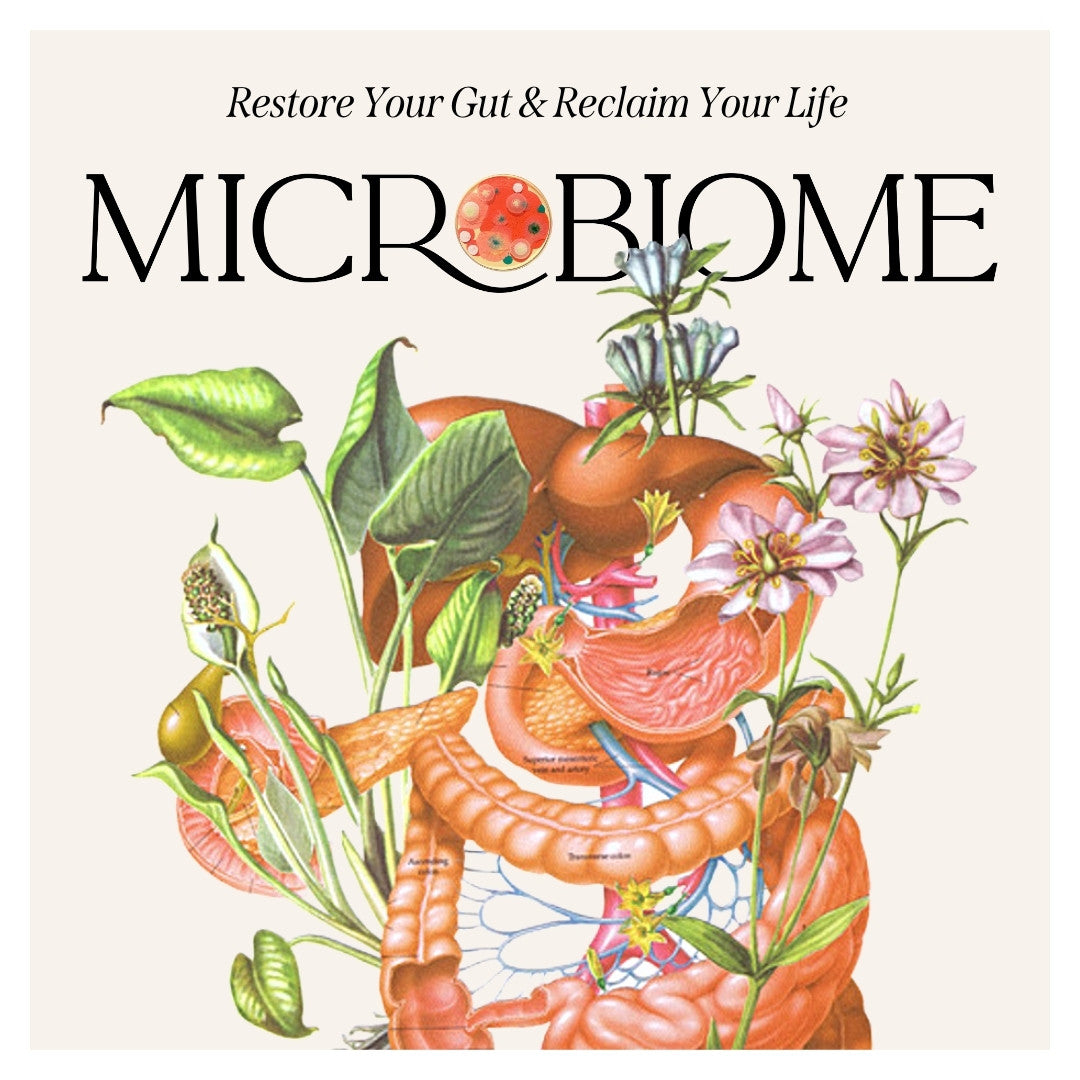

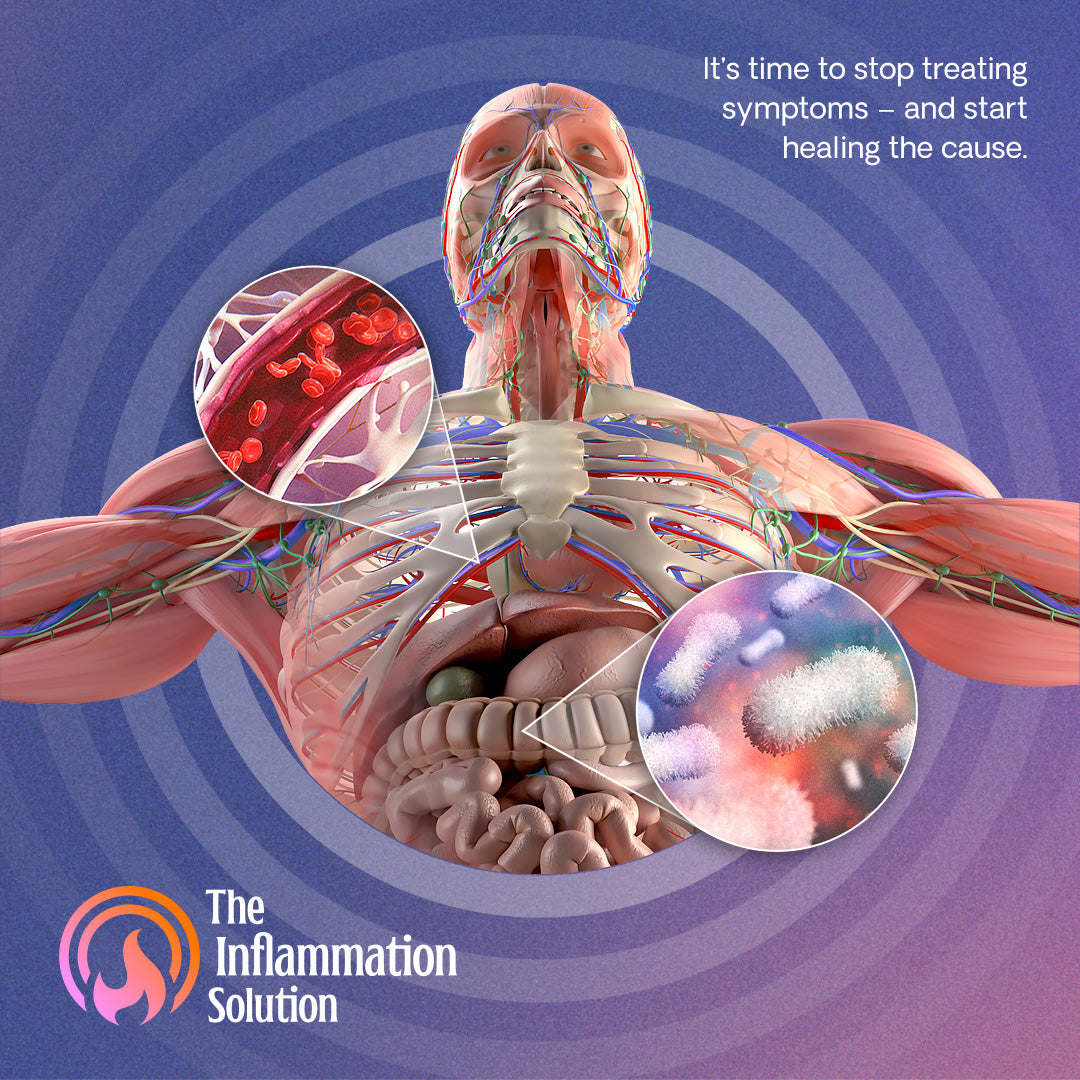

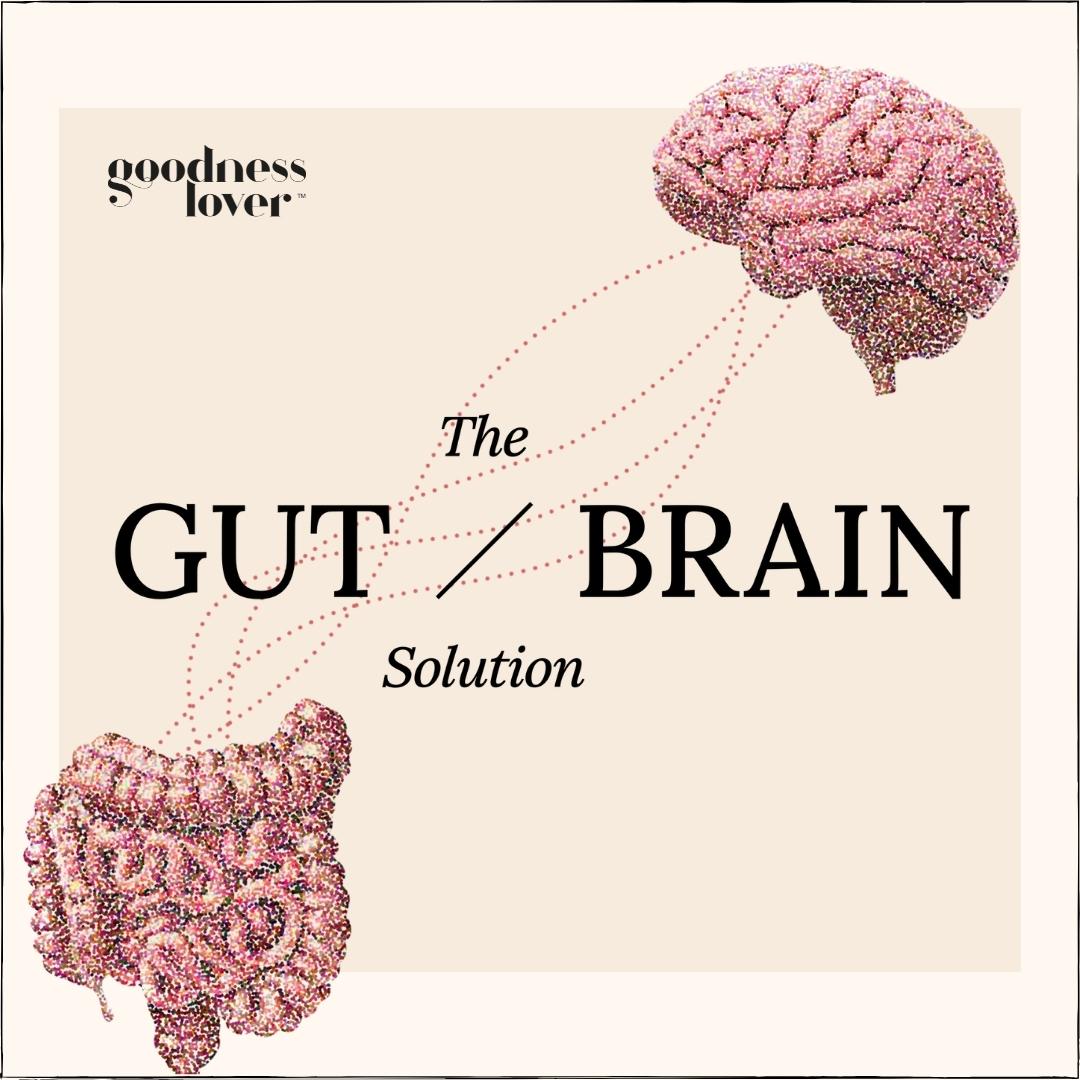

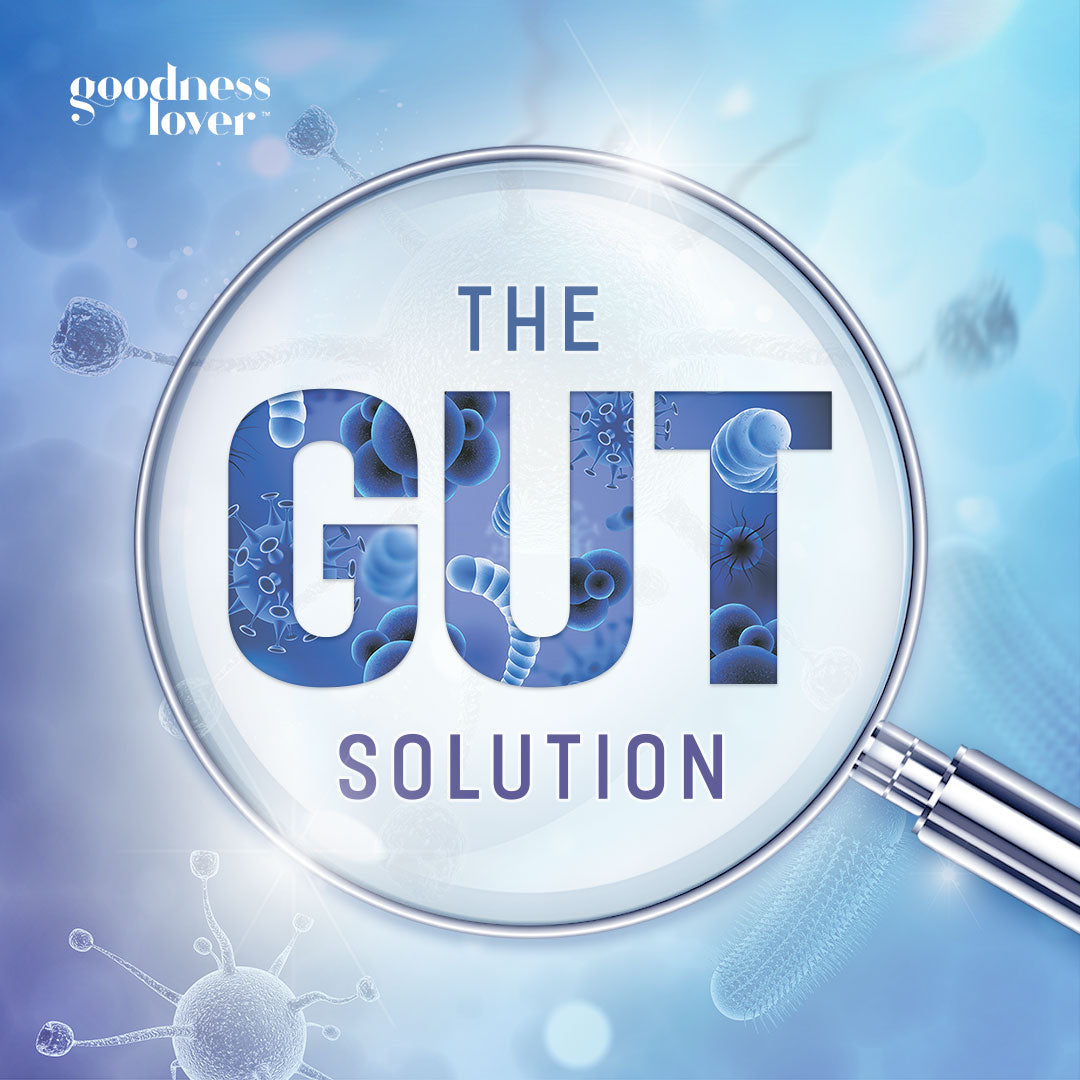

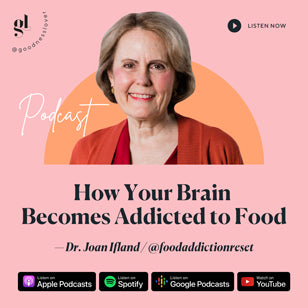
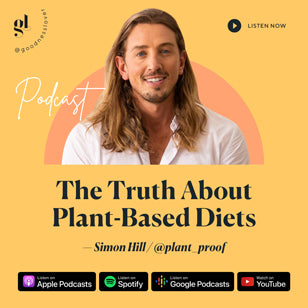

What Do You Think? Comment Below: